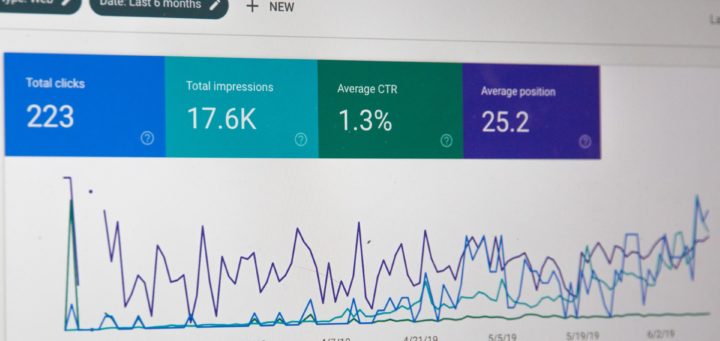Crawling, Indexing, and Ranking, Oh My! The Search Engine Lowdown
What you’ll learn about search engines:
- Search engines are powered by powerful technologies, but it’s up to you to build a strong optimization strategy so that your content is top of the search lists.
- Some of the most important things to know about search engine functionalities are:
- Crawling
- Indexing
- Ranking
Every day, internet users across the world type their questions into Google and expect the most relevant results. In order to provide these results, Google has to filter through millions of webpages to return the best and and most optimized content on its search engine. As users, we don’t even give it a second thought; we type in our query and expect the appropriate results to pop up immediately. But as a website owner, you need to understand how it all works behind the scenes so that your site is the most relevant content that search engines publish at the top of their results pages.
In this post, we’ll go over some of the key concepts you need to know about search engines, so that you can build a strong SEO (search engine optimization) strategy.
Crawling
Like other search engines, Google uses software called web crawlers to explore publicly available webpages, gathering information on new and updated content, and following links on those pages to review other pages. This process of following link after link is what leads the crawlers to find new URLs.
When a crawler comes across an error with a link or URL, such as a “404 not found” error, it will not be able to crawl the page that URL leads to (ie: it will not be able to access the content listed on that page). Having URL errors will prevent crawlers from accessing or seeing all of your site, meaning they will not return that URL to Google’s database of URLs, and it will then not be indexed and ranked to show up on the search engine results page. This is why it’s very important to actively monitor any URL or crawl error issues through Google Search Console and fix them ASAP.

Indexing
Once Google’s crawlers find a new URL, the content on that page is scanned and data points, such as keywords, are indexed into Google’s massive database of content worthy enough to return on search engine results pages.
It’s important to note here that just because a URL was once added to Google’s index, it doesn’t mean it’s there to stay. Pages can be removed from the index for a number of reasons: such as a URL returning “not found” or server errors, the page was penalized for violating Google’s guidelines and removed as a result, or the URL being password-protected.
Neil Patel has a great step-by-step post detailing exactly how you can get your site indexed by Google, as well as how to prevent errors or issues with pages that shouldn’t be indexed.
Ranking
There are hundreds of new webpages published every second. Google’s ranking system is designed to help filter through the massive amounts of content available on the web to bring you the most relevant and useful results within seconds.
As such, these ranking systems are understandably complex, and made up of a series of algorithms which help to process keywords, user intent, user location, search history, etc., and return results factored by relevance, source expertise, site usability, and even context. For example, a search algorithm will weigh this factor higher than others when returning a query about today’s football score vs. a historical football score from a game played 10 years ago.
Here’s a high level summary of some of the key factors that help Google and other search engines determine which results are returned for a given query:
Query Meaning: Understanding intent is fundamentally about understanding language, and is a critical aspect of search. Google builds language models to try to decipher what strings of words they should look up in the index. This involves steps as seemingly simple as interpreting spelling mistakes, and extends to trying to understand the type of query you’ve entered by applying some of the latest research on natural language understanding.
Webpage Relevance: The most basic signal that information is relevant is when a webpage contains the same keywords as your search query. If those keywords appear on the page, or if they appear in the headings or body of the text, the information is more likely to be relevant. Beyond simple keyword matching, Google uses aggregated and anonymized interaction data to assess whether search results are relevant to queries. They then transform that data into signals that help their machine-learned systems better estimate relevance.
Quality of Content: Beyond matching the words in your query with relevant documents on the web, search algorithms also aim to prioritize the most reliable sources available. To do this, Google’s systems are designed to identify signals that can help determine which pages demonstrate expertise, authoritativeness, and trustworthiness on a given topic. For example, they look for sites that many users seem to value for similar queries. If other prominent websites link to the page (what is known as PageRank), that has proven to be a good sign that the information is well trusted.
Website Usability: When ranking results, Google Search also evaluates whether webpages are easy to use. When Google identifies persistent user pain points, they develop algorithms to promote more usable pages over less usable ones, all other things being equal. These algorithms analyze signals that indicate whether all users are able to view the result, such as if the site appears consistently across different browsers, or is designed to be viewed across multiple device types and sizes, and how quickly the page loads.
Context & Settings: Information such as your location, past Search history and Search settings all help Google to tailor your results to what is most useful and relevant for you in that moment. They use your country and location to deliver content relevant for your area, or content in your default language as defined in your search settings.
The web is constantly evolving and so Google is constantly recrawling the web to index new sites. As a website owner, it’s a priority for you to ensure your website URLs are free from errors to avoid crawling and indexing issue. If your site can’t be properly indexed, then it won’t be showing up on the results page. In addition, in order to improve your site’s rank on the results pages, your SEO efforts and content creation should be consistent and of high quality. Following these tips will increase your chances of getting into one of those coveted spots at the top, improving your site traffic and lead generation efforts.
Photo Credit: Markus Winkler on Unsplash


